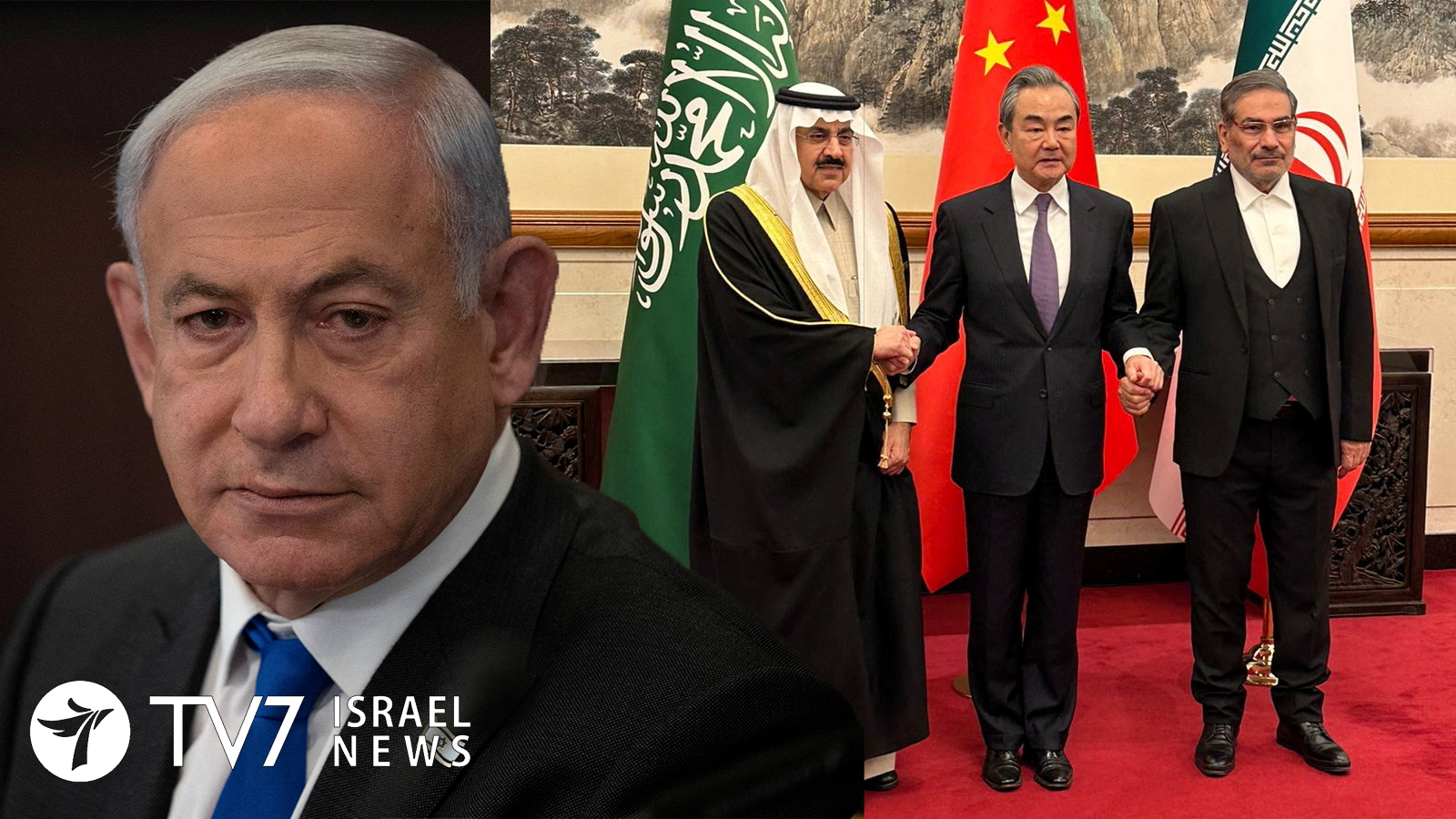The Chinese-brokered deal between the top Sunni and Shi’ite Muslim powers may pose challenges to both Israel and the United States.
By Jonathan Hessen and Erin Viner
Resumption of diplomatic relations between the two rival powers was announced on Friday at the culmination of four days of previously undisclosed talks by top security officials in Beijing. The détente follows years of hostility that had threatened stability and security in the Gulf and helped fuel conflicts in the Mideast from Syria to Yemen.
Saudi Arabia severed ties with the Islamic Republic in 2016 after the storming of its embassy in Tehran following execution of a Shi’ite Muslim religious leader in the Kingdom; which also holds its longtime foe for 2019 missile and drone attacks on its oil facilities and tankers in Gulf waters. Additionally, Iran’s Houthi proxy in Yemen has launched multiple cross-border missile and drone attacks against the Saudis, who are leading a coalition against them. The Houthis also extended their strikes to hit the United Arab Emirates in 2022.
Tehran and Riyadh are set to re-open embassies within two months, said a joint statement by Iran, Saudi Arabia and China, adding that, “The agreement includes their affirmation of the respect for the sovereignty of states and the non-interference in internal affairs.
The deal, signed by Iran’s Supreme National Security Council Secretary Ali Shamkhani and Saudi Arabian National Security Advisor Musaed bin Mohammed Al-Aiban, will restore a 2001 bilateral security cooperation accord, as well as another earlier agreement concerning bilateral trade, economy and investment.
Distressingly for Israel, Shamkhani specifically stated that the “new chapter” of ties to Saudi Arabia is geared toward prevention of “meddling from extra-regional and Western states, and consistent meddling of the Zionist regime in the region.”
Iran’s commitment to cease regional activities against Saudi interests also has far-reaching consequences for its proxies, the most powerful of which is the Lebanon-based Hezbollah terror organization, that refuses to believe that the Islamic Republic would end its support for its devotees regardless of its reported pledge.
“This is a good development. We are happy because we trust this won’t come at the expense of the people of the region, of course, but for their benefit,” declared Hezbollah Secretary General Hassan Nasrallah, adding, “If they would open up to each other and work together, this will definitely help – it will help in Lebanon, in Yemen, in Syria, in the region – and we have complete confidence that this will not come at our expense, nor at the expense of the Yemeni people, at the expense of Syria or at the expense of the resistance.”
White House Press Secretary Karine Jean-Pierre commented that diplomacy, deterrence and the lifting of Mideast tensions are clear US priorities, but stopped short of addressing China’s deepening role in the Middle East.
Echoing that statement, White House National Security Spokesperson John Kirby said, “This is not about China. We support any effort to de-escalate tensions in the region. We think that’s in our interests, and it’s something that we worked on through our own effective combination of deterrence and diplomacy.” He also stated that Saudi Arabia had kept the United States informed about the talks in Beijing, while clarifying that Washington held no direct role in the development.
The Saudi-Iran raproachment is widely viewed as a setback for efforts by Israeli Prime Minister Benjamin Netanyahu to isolate Iran.
While it remains to be seen whether the new pact will harm his outreach to Riyadh or the execution of a potential military strike to prevent Tehran from acquiring nuclear weapons, some analysts perceive a more pressing concern is that the US may be losing influence in the region just when the Netanyahu government needs it most.
An Israeli official speaking on condition of anonymity called the détente an unsurprising and preliminary process that would not necessarily damage prospects of parallel progress toward normalization between Jerusalem and Riyadh, similarly as the Abraham Accords pact with the United Arab Emirates despite Abu Dhabi’s own ties with Tehran.
For now, Israel is keeping up its campaign of veiled threat to launch a unilateral strike on Iran if nuclear diplomacy fails to yield the necessary outcome.
